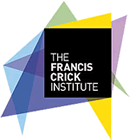About the Project
This 4-year PhD studentship is offered in Dr Mariia Yuneva’s Group based at the Francis Crick Institute (the Crick).
Altered metabolism is one of the hallmarks of tumorigenesis (1). Although multiple studies proposed inhibiting various metabolic pathways as potential anti-cancer strategies, targeting metabolism is proving to be challenging due to genetic and metabolic heterogeneity of tumours and flexibility of metabolism (2). The overarching goal of our programme is to discover how specific genetic lesions determine metabolic profiles of tumours and their metabolic requirements and vulnerabilities and how these relationships are shaped by tissue context and tumour microenvironment. We are also identifying the mechanisms of metabolic plasticity of tumours including an interplay between different metabolic pathways and metabolic interactions between a tumour and a host. Ultimately, we are seeking to identify more efficient therapeutic strategies aimed at targeting metabolic pathways at different stages of tumorigenesis.
One of the most dysregulated lesions in various types of tumours is transcriptional factor proto-oncogene MYC (3). We and others have demonstrated that MYC regulates multiple metabolic activities and can makes tumour cells sensitive to specific metabolic perturbations (4,5). Using mouse models of breast and liver cancer in combination with metabolomics approaches we have identified metabolic pathways of central carbon metabolism whose activity is different in tumours driven specifically by MYC in comparison with normal tissues. The project proposes to use genetic, pharmacological and dietary interventions to identify the requirement of these pathways for the initiation, progression and invasion of tumours with dysregulated MYC. State of the art metabolomics, sequencing and imaging approaches will be used to further identify the mechanisms of metabolic vulnerabilities of tumours. We will also seek to understand how metabolic perturbations affect the interaction between tumour cells and their microenvironment. Finally, we will evaluate the efficiency of targeting identified
Candidate background
This project will be suitable for the candidates with a background in cancer biology, biochemistry, metabolic imaging, metabolomics and strong interest in cancer and metabolism.
Talented and motivated students passionate about doing research are invited to apply for this PhD position. The successful applicant will join the Crick PhD Programme in September 2020 and will register for their PhD at one of the Crick partner universities (Imperial College London, King’s College London or UCL).
Applicants should hold or expect to gain a first/upper second-class honours degree or equivalent in a relevant subject and have appropriate research experience as part of, or outside of, a university degree course and/or a Masters degree in a relevant subject.
APPLICATIONS MUST BE MADE ONLINE VIA OUR WEBSITE (ACCESSIBLE VIA THE ‘APPLY NOW’ LINK ABOVE) BY 12:00 (NOON) 13 NOVEMBER 2019. APPLICATIONS WILL NOT BE ACCEPTED IN ANY OTHER FORMAT.
References
1. Vander Heiden, M. G. and DeBerardinis, R. J. (2017)
Understanding the intersections between metabolism and cancer biology.
Cell 168: 657-669. PubMed abstract
2. Kim, J. and DeBerardinis, R. J. (2019)
Mechanisms and implications of metabolic heterogeneity in cancer.
Cell Metabolism 30: 434-446. PubMed abstract
3. Meyer, N. and Penn, L. Z. (2008)
Reflecting on 25 years with MYC.
Nature Reviews Cancer 8: 976-990. PubMed abstract
4. Yuneva, M. O., Fan, T. W. M., Allen, T. D., Higashi, R. M., Ferraris, D. V., Tsukamoto, T., . . . Bishop, J. M. (2012)
The metabolic profile of tumors depends on both the responsible genetic lesion and tissue type.
Cell Metabolism 15: 157-170. PubMed abstract
5. Gouw, A. M., Margulis, K., Liu, N. S., Raman, S. J., Mancuso, A., Toal, G. G., . . . Felsher, D. W. (2019)
The MYC oncogene cooperates with sterol-regulated element-binding protein to regulate lipogenesis essential for neoplastic growth.
Cell Metabolism 30: 556-572 e555. PubMed abstract

 Continue with Facebook
Continue with Facebook

